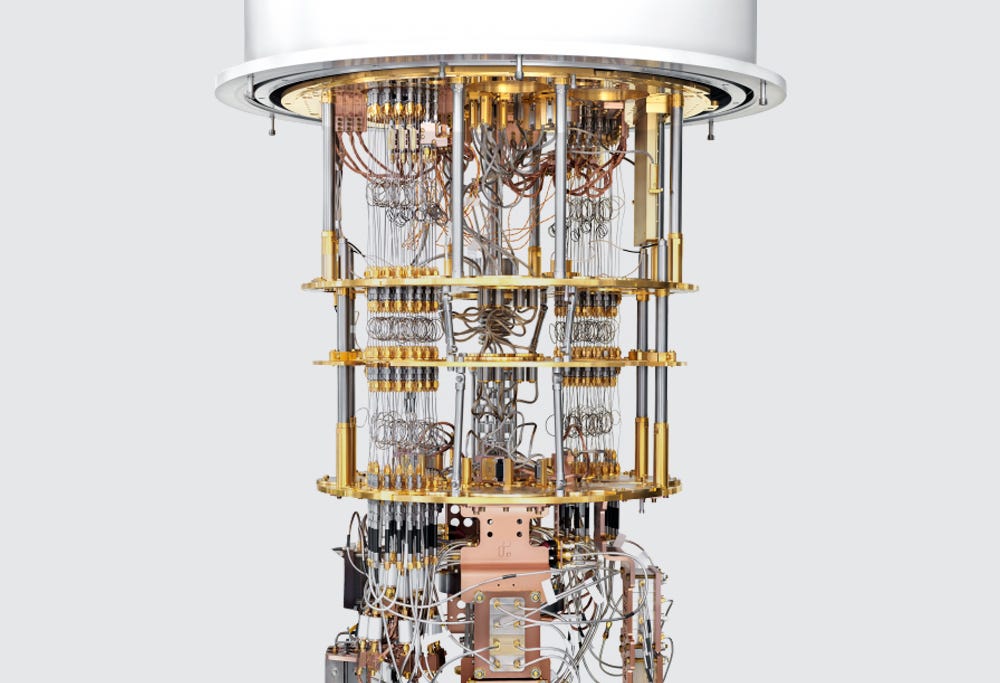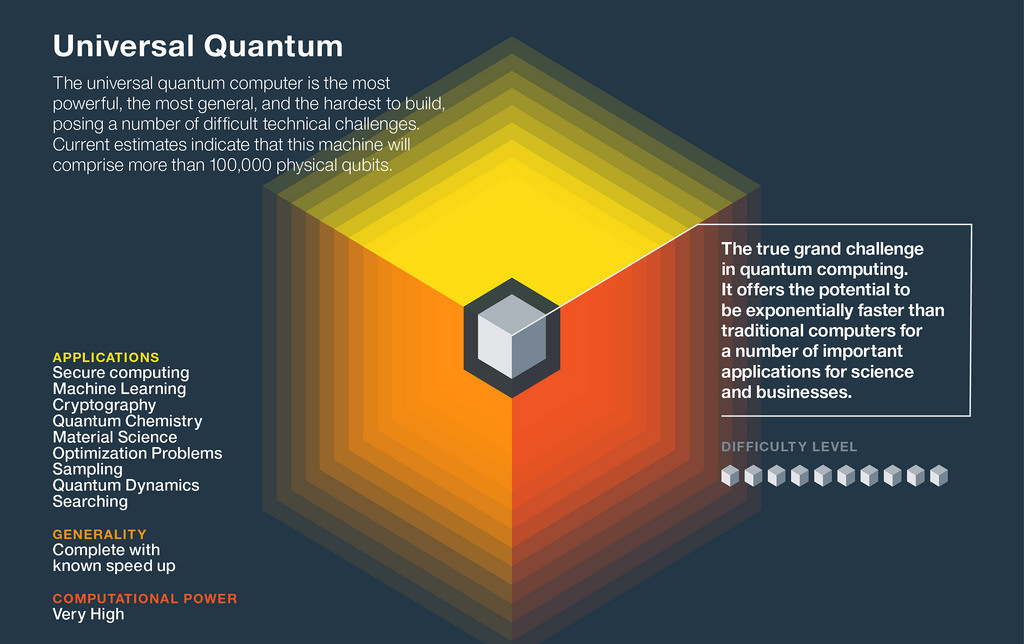How ChatGPT is trained to be the best chatbot
What is ChatGPT? ChatGPT is a chatbot that has been tra...
Quantum computing is an emerging technology that holds promise for revolutionizing computing as we know it. Unlike traditional computers that use bits that can store a maximum of 2^64, quantum computers use qubits that can theoretically store a virtually unlimited amount of data. This means that quantum computers have the potential to be orders of magnitude faster and more powerful than even the most powerful supercomputers today.
Scientists are still working on perfecting quantum computers, but there are already a number of companies investing in the technology. Google, IBM, Microsoft, and Rigetti are just a few of the major players in the quantum computing race.
While quantum computers are not yet ready for widespread use, they hold immense potential for the future. They could be used for everything from solving complex mathematical problems to creating new medicines and materials.
Some experts even believe that quantum computers will eventually become powerful enough to simulate entire universes. This would allow us to explore alternate realities and potentially find answers to some of the universe’s biggest mysteries.
Whether quantum computers live up to their hype remains to be seen. But there’s no doubt that they have the potential to change the world as we know it.

Quantum computing is a type of computing where information is processed using quantum bits instead of classical bits. This makes quantum computers much faster and more powerful than traditional computers. Quantum computing is still in its early stages, but it has the potential to revolutionize the way we use computers.

Quantum Computing is the use of quantum-mechanical phenomena, such as superposition and entanglement, to perform calculations. A quantum computer operates on qubits, which are units of quantum information.
2. How does it work?
Traditional computers use bits, which are either 1 or 0. A qubit can be both 1 and 0 simultaneously. This allows for many calculations to be done at the same time.
3. What are the benefits of quantum computing?
Quantum computing can solve problems that are too difficult or time-consuming for traditional computers. It can also help with data security and privacy.
4. What are the challenges of quantum computing?
Quantum computing is still in its early stages and is not yet commercially available. There are also concerns about the security of qubits.
Quantum computing is often described as the next big thing in computing, and for good reason. If commercialized, it promises to revolutionize the way we solve problems and process information.
Traditional computers encode information as bits, which can be either 1 or 0. Quantum computers, on the other hand, use quantum bits, or qubits. Qubits can represent a 1, a 0, or both simultaneously, thanks to the bizarre laws of quantum mechanics. This allows quantum computers to perform several calculations at once, which is why they are so powerful.
In theory, a quantum computer could solve certain problems much faster than a traditional computer. For example, a quantum computer could quickly factor large numbers, a task that is currently very difficult for traditional computers. This could have major implications for data security, since many encryption schemes rely on the fact that it is difficult to factor large numbers.
Quantum computers could also be used to simulate complex quantum systems, such as molecules. This could lead to new discoveries in chemistry and physics, and could help us design more efficient drugs and materials.
Currently, quantum computers are still in their infancy. The first quantum computers were built in the early 2000s, and they could only perform very simple tasks. However, quantum computing technology has been rapidly improving, and it is now possible to buy quantum computers that are several orders of magnitude more powerful than the early prototypes.
It is still early days for quantum computing, but the potential applications are very exciting. In the future, quantum computers could change the way we live and work in ways that we cannot even imagine today.

Quantum computing has the potential to revolutionize the future in a number of ways. First and foremost, quantum computing could enable the development of new and more powerful artificial intelligence technologies. Additionally, quantum computing could help to solve some of the world’s most complex scientific problems and could even lead to the discovery of new and more powerful forms of energy. Finally, quantum computing could help to create a more secure cyberspace.
Quantum computing faces a number of significant challenges, not the least of which is building a machine that can harness the power of quantum mechanics. While there have been some impressive advances in quantum computing in recent years, the technology is still in its infancy and has a long way to go before it can be used for practical purposes.
One of the biggest challenges is developing a quantum computer that is large enough to be useful. The current generation of quantum computers is extremely limited in terms of the number of qubits (quantum bits) they can process. This means that they are only capable of solving very specific, narrow problems. To be truly useful, a quantum computer would need to be able to scale up to thousands or even millions of qubits.
Another challenge is keeping the qubits stable long enough to perform calculations. Quantum computers are based on subatomic particles, which are notoriously unstable and difficult to control. Even the slightest disturbance can cause a qubit to lose its quantum state, which renders the computation useless. Researchers are working on a number of ways to overcome this problem, but so far there is no silver bullet.
Finally, there is the challenge of programming a quantum computer. Traditional computers are based on a deterministic model of computation, meaning that the same input will always produce the same output. Quantum computers, on the other hand, are based on a probabilistic model of computation, meaning that the same input may sometimes produce different outputs. This makes programming a quantum computer much more difficult, as even small changes in the input can result in completely different outputs.
Despite these challenges, quantum computing holds great promise. Once these obstacles are overcome, quantum computers will be able to solve problems that are currently beyond the reach of even the most powerful classical computers.

Quantum computing is a rapidly growing field of computer science that is still in its infancy. Despite this, there are already several major challenges that face quantum computing researchers.
The first challenge is that quantum computers are extremely difficult to build. The components of a quantum computer need to be cooled to near absolute zero, and even a single mistake can destroy the entire computer.
Another challenge is that quantum computers are very unstable. The qubits that make up the computer can easily become corrupted, which can cause the computer to produce incorrect results.
Finally, quantum computers are very difficult to program. The algorithms that run on quantum computers are vastly different from the algorithms that run on classical computers. This presents a major challenge for anyone who wants to use a quantum computer.
You cannot copy content of this page